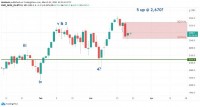|
This viewpoint is from Ferenc Sanderson, chief operating officer of Cranwood Capital Management LLC. He points out the problems that can be caused by the conventional pigeonholing of investment styles. Cranwood is an interesting example of a fund that straddles categories. Increasingly, fund managers are using futures to implement strategies that are not classified as managed futures. Conversely, many commodity trading advisors overlap with global macro. Welton Investment Corp., featured in this issue, is a case in point, spanning managed futures and global macro. Before he joined Cranwood, Mr. Sanderson was senior hedge fund analyst at Lipper and a research fellow attached to Columbia University’s Program on Alternative Investments. Earlier in his career he was director of research at Daiwa Securities America. Beware of Labels “The bucket you are put into has an important bearing on how investors perceive you.” Hedge fund strategy labels can be deceptive, as became clear last year. What were supposed to be distinct strategies turned out to be quite similar. The experience suggests that investors should pay closer attention to what a manager is actually doing and not take the strategy description at face value. In 2008 this was exposed in a dramatic way, in widespread style-drift. The indices for all hedge fund categories correlated at record high levels (often over 0.8) with the price of oil and other commodities as well as with the MSCI World Index. Even multi-strategy single-manager returns demonstrated similarly high correlations to oil and stocks. That means that one way or another everyone was following the same trade, namely going short the financials and long oil. That was the trade du jour. But in the summer of 2008, the trade blew up. So almost everyone suffered losses, regardless of the size of the firm, whether it had a well developed infrastructure or how deep its talent pool was. Such crowded trades plus style drift explain what happened as everyone played the same beta movements. There were $10 billion managers going down alongside $10 million managers. The point is that investors’ portfolios turned out to be a lot less diversified than you would expect from the standard strategy descriptions. Only now do institutional investors and other allocators realize the mistakes that were made. My own experience is another example of how misleading labels can be. Cranwood pursues a fixed income arbitrage strategy, focusing on mean-reversion along the US interest rate curve. But we execute this strategy exclusively with futures contracts using butterfly spreads. So in a sense we fall into the CTA and managed futures allocation bucket. Some investors pigeonhole us under the broader fixed income arbitrage label, mixing what we do with mortgage-backed securities, corporate or junk bond instruments. But our instruments are liquid, exchange-listed and devoid of heavy leverage or counter-party risk issues. Since we trade only futures, you could consider us a managed futures fund. But then, our risk/return profile may be more consistent and substantially less volatile other managed futures funds which tend to be more directional and trend following. Moreover, we stay in our niche in interest rates and do not blend financial, commodity or currency futures. Good News The bucket you are put into has an important bearing on how investors perceive you. They may be looking for certain characteristics that they associate with certain strategies. For instance, today the majority of investors want trading oriented strategies that have liquidity, focus on exchange-traded instruments, do not employ a lot of leverage and are not susceptible to counterparty risk. So it is important for a manager to clearly explain what he’s doing and just as important for the investor to understand the characteristics of the fund. Investors can probably understand more clearly a manager's underlying strategy, instruments and risk factors when honing in on specialist alpha generators. In many cases, the risk factors of these niche/specialist managers can be defined, whereas managers that pursue a broader mandate might be subject to the same kinds of style drift and crowded trades many suffered from in 2008. The reality is that people tend to go with what they know, or have been accustomed to doing, so it is no wonder that a blind reliance on traditional labels continues to dominate manager search and initial screening. The good news is that academic researchers are increasingly moving away from self-defined strategy labels to more objective descriptors of fund performance and returns. It is only a matter of time before the whole lexicon of investment categories changes. |
|
This article was published in Opalesque Futures Intelligence.
|





 RSS
RSS











